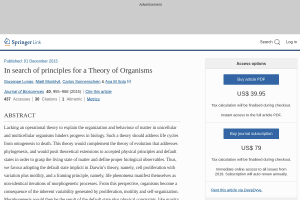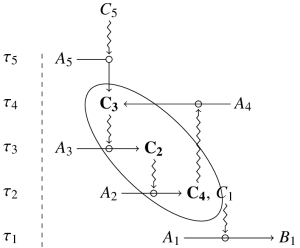
In search of principles for a theory of organisms
Journal of Biosciences
Lacking an operational theory to understand life cycles hinders progress in biology. We discuss elements towards such a theory, such as inertia and thermodynamics.
Abstract
Lacking an operational theory to explain the organization and behaviour of matter in unicellular and multicellular organisms hinders progress in biology. Such a theory should address life cycles from ontogenesis to death. This theory would complement the theory of evolution that addresses phylogenesis, and would posit theoretical extensions to accepted physical principles and default states in order to grasp the living state of matter and define proper biological observables. Thus, we favour adopting the default state implicit in Darwin’s theory, namely, cell proliferation with variation plus motility, and a framing principle, namely, life phenomena manifest themselves as non-identical iterations of morphogenetic processes. From this perspective, organisms become a consequence of the inherent variability generated by proliferation, motility and self-organization. Morphogenesis would then be the result of the default state plus physical constraints, like gravity, and those present in living organisms, like muscular tension.
Keywords: Animals, Biological Evolution, Biophysics/methods, Cell Division, Mice, Models, Morphogenesis, Thermodynamics





